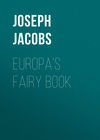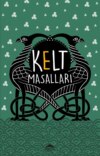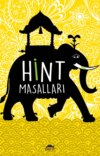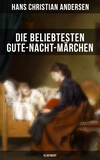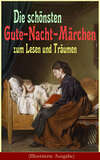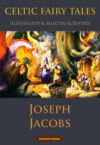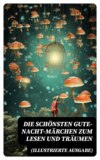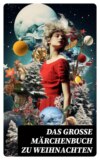Kitabı oku: «Europa's Fairy Book», sayfa 9
THE CLEVER LASS
Now there was once a farmer who had but one daughter of whom he was very proud because she was so clever. So whenever he was in any difficulty he would go to her and ask her what he should do. It happened that he had a dispute with one of his neighbours, and the matter came before the King, and he, after hearing from both of them, did not know how to decide and said:
"You both seem to be right and you both seem to be wrong, and I do not know how to decide; so I will leave it to yourselves in this way: whichever of you can answer best the three questions I am about to ask shall win this trial. What is the most beautiful thing? What is the strongest thing? and, What is the richest thing? Now go home and think over your answers and bring them to me to-morrow morning."
So the farmer went home and told his daughter what had happened, and she told him what to answer next day.
So when the matter came up for trial before the King he asked first the farmer's neighbour,
"What is the most beautiful thing?"
And he answered, "My wife."
Then he asked him, "What is the strongest thing?"
"My ox."
"And what is the richest?"
And he answered, "Myself."
Then he turned to the farmer and asked him,
"What is the most beautiful thing?"
And the farmer answered, "Spring."
Then he asked him, "What is the strongest?"
"The earth."
Then he asked, "What is the richest thing?"
He answered, "The harvest."
Then the King decided that the farmer had answered best, and gave judgment in his favour. But he had noticed that the farmer had hesitated in his answers and seemed to be trying to remember things. So he called him up to him and said,
"I fancy those arrows did not come from your quiver. Who told you how to answer so cleverly?"
Then the farmer said, "Please your Majesty, it was my daughter who is the cleverest girl in all the world."
"Is that so?" said the King. "I should like to test that."
Shortly afterwards the King sent one of his servants to the farmer's daughter with a round cake and thirty small biscuits and a roast capon, and told him to ask her whether the moon was full, and what day of the month it was, and whether the rooster had crowed in the night. On the way the servant ate half the cake and half of the biscuits and hid the capon away for his supper. And when he had delivered the rest to the Clever Girl and told his message she gave this reply to be brought back to the King:
"It is only half-moon and the 15th of the month and the rooster has flown away to the mill; but spare the pheasant for the sake of the partridge."
And when the servant had brought back this message to the King, he cried out,
"You have eaten half the cake and fifteen of the biscuits and didn't hand over the capon at all."
Then the servant confessed that this was all true, and the King said,
"I would have punished you severely but that this Clever Girl begs me to forgive the pheasant, by which she meant you, for the sake of the partridge, by which she meant herself. So you may go unpunished."
The King was so delighted with the cleverness of the girl that he determined to marry her. But, wishing to test her once more before doing so, he sent her a message that she should come to him clothed, yet unclothed, neither walking, nor driving, nor riding, neither in shadow nor in sun, and with a gift which is no gift.
When the farmer's daughter received this message she went near the King's palace, and having undressed herself wrapped herself up in her long hair, and then had herself placed in a net which was attached to the tail of a horse. With one hand she held a sieve over her head to shield herself from the sun; and in the other she held a platter covered with another platter.
Thus she came to the King neither clothed nor unclothed, neither walking, nor riding, nor driving, neither in sun nor in shadow.
Now when she was released from the net and a mantle had been placed over her she handed the platter to the King, who took the top platter off, whereupon a little bird that had been between the two platters flew away. This was the gift that was no gift.
The King was so delighted at the way in which the farmer's daughter had solved the riddle that he immediately married her and made her his Queen. And they lived very happily together though no children came to them. The King depended upon her for advice in all his affairs and would often have her seated by him when he was giving judgment in law matters.
Now it happened that one day at the end of all the other cases there came two peasants, each of whom claimed a foal that had been born in a stable where they had both left their carts, one with a horse and the other with a mare. The King was tired with the day's pleadings, and without thinking and without consulting his Queen who sat by his side, he said,
"Let the first man have it," who happened to be the peasant whose cart was drawn by the horse.
Now the Queen was vexed that her husband should have decided so unjustly, and when the court was over she went to the other peasant and told him how he could convince the King that he had made a rash judgment. So the next day he took a stool outside the King's window and commenced fishing with a fishing-rod in the road.
The King looking out of his window saw this and began to laugh and called out to the man,
"You won't find many fish on a dry road," to which the peasant answered,
"As many as foals that come from a horse."
Then the King remembered his judgment of yesterday and, calling the men before him, decided that the foal should belong to the man who had the mare and who had fished in front of his windows. But he said to him as he dismissed them,
"That arrow never came from your quiver."
Then he went to his Queen in a towering rage and said to her,
"How dare you interfere in my judgments?"
And she said, "I did not like my dear husband to do what was unjust." But the King said,
"Then you ought to have spoken to me, not shamed me before my people. That is too much. You shall go back to your father who is so proud of you. And the only favour I can grant you will be that you can take with you from the palace whatever you love best."
"Your Majesty's wish shall be my law," said the Queen, "but let us at least not part in anger. Let me have my last dinner as Queen in your company."
When they dined together the Queen put a sleeping potion in the King's cup, and when he fell asleep she directed the servants to put him in the carriage that was waiting to take her home, and carried him into her bed. When he woke up next morning he asked,
"Where am I, and why are you still with me?"
Then the Queen said, "You allowed me to take with me that which I loved best in the palace, and so I took you."
Then the King recognized the love his Queen had for him, and brought her back to his palace, and they lived together there forever afterwards.
THUMBKIN
A woman was once stringing beans in her kitchen, and she thought to herself:
"Oh, why have I not got a little baby boy; if I had only one as big as one of these beans or as big as my thumb I should be content. How I would love it, and dress it, and talk to it."
As she was speaking thus to herself and finishing off the beans, suddenly she thought they all turned into little baby boys, jumping and writhing about. She was so startled and afraid that she shook out her apron, in which they all lay, into a big bowl of water with which she was going to wash the beans. And then she hid her head in her apron so as not to see what happened; and after a while she looked out from under her apron and looked at the bowl, and there were all the little boys floating and drowned, except one little boy at the top. And she took pity on him and drew him out of the bowl; then she showed him to her husband when he came home.
"We have always wanted a boy," she said to him, "even if it were not bigger than our thumbs, and here we have him."
So they took him and dressed him up in a little doll's dress and made much of him; and he learnt to talk, but he never grew any bigger than their thumbs; and so they called him Thumbkin.
One day the man had to go down into the field, and he said to his wife:
"My dear, I am going to get ready the horse and cart, and then I am going down to the field to reap, and just at eleven o'clock I want you to drive the cart down for me."
"Isn't that just like a man?" said his wife. "I suppose you'll want your dinner at twelve, and how do you expect me to get it ready if I have to drive your horse and cart down to the field and then have to trudge back on my ten toes and get your dinner ready? What do you think I am made of?"
"Well, it has to be done," said the man, "even if dinner has to be late."
So they commenced quarrelling, till Thumbkin called out:
"Leave it to me, Father; leave it to me."
"Why, what can you do?" asked the man.
"Well," said Thumbkin, "if mother will only put me in Dobbin's ear, I can guide him down to the field as well as she could."
At first they laughed, but then they thought they would try. So the man went off to the field, and at eleven o'clock the woman put Thumbkin into the horse's right ear; and he immediately called out, "Gee!"
And the horse began to move. And as it went on towards the field Thumbkin kept calling out:
"Right! Left! Left! Right!" and so on till they got near the field.
Now it happened that two men were coming that way, and they saw a horse and cart coming towards them, with nobody on it, and yet the horse was picking his way and turning the corners just as if somebody was guiding him. So they followed the horse and cart till they got to the field, when they saw the man take Thumbkin out of the horse's ear and stroke him and thank him. They looked at one another and said:
"That lad is a wonder; if we could exhibit him we would make our fortunes."
So the men went up to the man and said:
"Will you sell that lad?"
But the man said:
"No, not for a fortune; he's the light of our life."
But Thumbkin, who was seated on the man's shoulder, whispered to him:
"Sell me and I'll soon get back."
So the man after a time agreed to sell Thumbkin for a great deal of money, and the men took him away with them.
"How shall we carry him?" said they.
But Thumbkin called out:
"Put me on the rim of your hat and I shall be able to see the country."
And that is what they did.
After a time as it got dusk the men sat down by the wayside to eat their supper. And the man took off his hat and put it on the ground, when Thumbkin jumped off and hid himself in the crevice of a tree.
When they had finished their supper the men looked about to find Thumbkin, but he was not there. And after a while they had to give up the search and go away without him.
When they had gone three robbers came and sat down near the tree where Thumbkin was and began to speak of their plans to rob the Squire's house.
"The only way," said one, "would be to break down the door of the pantry which they always lock at night."
"But," said another, "that'll make so much noise it will wake up the whole house."
"Then one of us," said the first robber, "will have to creep in through the window and unlock the door."
"But the window is too small," said the third robber; "none of us could get through it."
"But I can," called out Thumbkin.
"What is that? Who was that?" called out the robbers, who commenced thinking of running away. And then Thumbkin called out again:
"Do not be afraid, I'll not hurt you, and I can help you get into the Squire's pantry."
Then he came out of the hole in the tree, and the robbers were surprised to see how small he was. So they took him up with them to the Squire's house, and when they got there they lifted him up and put him through the window and told him to look out for the silver.
"I've found it! I've found it!" he called out at the top of his shrill voice.
"Not so loud; not so loud," said they.
"What shall I hand out first, the spoons or the ladles?" he shouted out again.
But this time the butler heard him and came down with his blunderbuss, and the robbers ran off. So when the butler opened the door Thumbkin crept out and went to the stable, and laid down to sleep in a nice cozy bed of hay in the manger.
But in the morning the cows came into the stable, and one of them walked up to the manger. And what do you think she did? She swallowed the hay with little Thumbkin in it, and took him right down into her tummy.
Shortly afterwards the cows were driven out to the milking place, and the milkmaid commenced to milk the cow which had swallowed Thumbkin. And when he heard the milk rattling into the pail he called out:
"Let me out! Let me out! Let me out!"
The milkmaid was so startled to hear a voice coming from the cow that she upset the milking pail and rushed to her master, and said:
"The cow's bewitched! The cow's bewitched! She's talking through her tummy."
The farmer came and looked at the cow, and when he heard Thumbkin speaking out of her tummy he thought the milkmaid was quite right, and gave orders for the cow to be slaughtered.
And when she was cut up by the butcher he didn't want the paunch—that is the stomach—so he threw it out into the yard. And a wolf coming by swallowed the paunch and Thumbkin with it.
When he found himself again in the wolf's stomach he called out as before:
"Let me out! Let me out! Let me out!"
But the wolf said to him:
"What'll you do for me if I let you out?"
"I know a place where you can get as many chickens as you like, and if you let me out I'll show you the way."
"No, no, my fine master," said the wolf; "you can tell me where it is, and if I find you are right then I'll let you out."
So Thumbkin told him a way to his father's farm, and guided him to a hole in the larder just big enough for the wolf to get through. When he got through there were two fine fat ducks and a noble goose hung up ready for the Sunday dinner. So Mr. Wolf set to work and ate the ducks and the goose while Thumbkin kept calling out:
"Don't want any duck or geese. Let me out! Let me out!"
And when the wolf would not he called out:
"Father! Father! Mother! Mother!"
And his father and mother heard him, and they came rushing towards the larder. Then the wolf tried to get through the hole he had come through before, but he had eaten so much that he stuck there, and the farmer and his wife came up and killed him.
Then they began to cut the wolf open and Thumbkin called out:
"Be careful! Be careful! I'm here, and you'll cut me up." And he had to dodge the knife as it was coming through the wolf.
But at last the paunch of the wolf was slit open, and Thumbkin jumped out and went to his mother. And she cleansed him and dressed him in new clothes, and they sat down to supper as happy as could be.
SNOWWHITE

There was once a queen who had no children, and it grieved her sorely. One winter's afternoon she was sitting by the window sewing when she pricked her finger, and three drops of blood fell on the snow. Then she thought to herself:
"Ah, what would I give to have a daughter with skin as white as snow and cheeks as red as blood."
After a while a little daughter came to her with skin as white as snow and cheeks as red as blood. So they called her Snowwhite.
But before Snowwhite had grown up, her mother, the Queen, died and her father married again, a most beautiful princess who was very vain of her beauty and jealous of all women who might be thought as beautiful as she was. And every morning she used to stand before her mirror and say:
"Mirror, mirror, on the wall,
Who is the fairest of us all?"
And the mirror always used to reply:
"Queen, Queen, on thy throne,
The greatest beauty is thine own."
But Snowwhite grew fairer and fairer every year, till at last one day when the Queen in the morning spoke to her mirror and said:
"Mirror, mirror, on the wall,
Who is the fairest of us all?"
the mirror replied:
"Queen, Queen, on thy throne,
Snowwhite's the fairest thou must own."
Then the Queen grew terribly jealous of Snowwhite and thought and thought how she could get rid of her, till at last she went to a hunter and engaged him for a large sum of money to take Snowwhite out into the forest and there kill her and bring back her heart.
But when the hunter had taken Snowwhite out into the forest and thought to kill her, she was so beautiful that his heart failed him, and he let her go, telling her she must not, for his sake and for her own, return to the King's palace. Then he killed a deer and took back the heart to the Queen, telling her that it was the heart of Snowwhite.
Snowwhite wandered on and on till she got through the forest and came to a mountain hut and knocked at the door, but she got no reply. She was so tired that she lifted up the latch and walked in, and there she saw three little beds and three little chairs and three little cupboards all ready for use. And she went up to the first bed and lay down upon it, but it was so hard that she couldn't rest; and then she went up to the second bed and lay down upon that, but that was so soft that she got too hot and couldn't go to sleep. So she tried the third bed, but that was neither too hard nor too soft, but suited her exactly; and she fell asleep there.
In the evening the owners of the hut, who were three little dwarfs who earned their living by digging coal in the hills, came back to their home. And when they came in, after they had washed themselves, they went to their beds, and the first of them said:
"Somebody has been sleeping in my bed!"
And then the second one said:
"And somebody's been sleeping in my bed!"
And the third one called out in a shrill voice, for he was so excited:
"Somebody is sleeping in my bed, just look how beautiful she is!"
So they waited till she woke up, and asked her how she had come there, and she told them all that the hunter had said to her about the Queen wanting to slay her.
Then the dwarfs asked her if she would be willing to stop with them and keep house for them; and she said that she would be delighted.
Next morning the Queen went up as usual to her mirror, and called out:
"Mirror, mirror, on the wall,
Who is the fairest of us all?"
And the mirror answered as usual:
"Queen, Queen, on thy throne,
Snowwhite's the fairest thou must own."
And the Queen knew that Snowwhite had not been slain. So she sent for the hunter and made him confess that he had let Snowwhite go; and she made him search about beyond the forest, till at last he brought back word to her that Snowwhite was dwelling in a little hut on the hill with some coal-miners.
Then the Queen dressed herself up like an old woman, and, taking a poisoned comb with her, went back the next day to the hut where Snowwhite was living. Now the dwarfs had warned her not to open the door to anybody lest evil might befall her; and she found it very lonesome keeping always within doors.
When the Queen, disguised as an old woman, came to the door of the house she knocked upon it with her stick, but Snowwhite called out from within:
"Who is there? Go away! I must not let anybody come in."
"All right," answered the Queen. "If you can come to the window we can have a little chat there, and I can show you my wares."
So when Snowwhite came to the window the Queen said:
"Oh, what beautiful black hair; you ought to have a comb to bind it up;" and she showed her the comb that she had brought with her.
But Snowwhite said:
"I have no money and cannot afford to buy so fine a comb."
Then the Queen said:
"That is no matter; perhaps you have something golden that you can give me in exchange."
And Snowwhite thought of a golden ring that her father had given to her, and offered to give it for the comb. The Queen took it and gave Snowwhite the comb and bade her good-bye, and went back to the palace.
Snowwhite lost no time in going to the mirror, and binding up her hair and putting the comb into it. But it had scarcely been in her hair a few minutes when she fell down as if she were dead, and all the blood left her cheeks, and she was Snowwhite indeed.
When the dwarfs came home that evening they were surprised to find that the table was not spread for them, and looking about they soon found Snowwhite lying upon the ground as if she were dead. But one of them listened to her heart and said: "She lives! She lives!"
And they began to consider what caused Snowwhite to fall into such a swoon. They soon found the comb, and when they took it out Snowwhite soon opened her eyes and became as lively as she ever was before.
Next morning the Queen went to the mirror on the wall and said to it:
"Mirror, mirror, on the wall,
Who is the fairest of us all?"
Then the mirror said as before:
"Queen, Queen, on thy throne,
Snowwhite's the fairest thou must own."
Then the Queen knew that something had happened to the comb and that Snowwhite was still alive. So she dressed herself once more as an old woman and took with her a poisoned ribbon and went to the hut of the three dwarfs. And when she got there she knocked at the door, but Snowwhite called out:
"You cannot enter; I must not open the door."
Then, as before, the Queen called out in reply:
"Then come to the window, and you can see my wares."
When Snowwhite came to the window the Queen said:
"You are looking more beautiful than ever, but how unbecomingly you arrange your hair. Did you use that comb I gave you yesterday?"
"Yes, indeed," said Snowwhite, "and I fell into a swoon because of it; I am afraid there is something the matter with it."
"No, no, that cannot be," said the Queen; "there must be some mistake. But if you cannot use the comb I will let you have this pretty ribbon instead," and she held out the poisoned ribbon. Snowwhite took it, and after the old woman, as she thought she was, had gone away, Snowwhite went to the mirror and tied up her hair with the piece of ribbon. But scarcely had she done so when she fell to the ground lifeless and lay there as if she were dead.
That evening the dwarfs came home and found Snowwhite lying on the ground as if dead, but soon discovered the poisoned ribbon and untied it; and almost as soon as this was done Snowwhite revived again.
Next morning the Queen went once more to the mirror on the wall, and called out:
"Mirror, mirror, on the wall,
Who is the fairest of us all?"
to which the mirror replied, without any change:
"Queen, Queen, on thy throne,
Snowwhite's the fairest thou must own."
And the Queen recognized that once again her plans had failed, and Snowwhite was still alive. So she dressed herself once more and took with her a poisoned apple, which was so arranged that only one half of it was poisoned and the rest of it was left as before. And when the Queen got to the hut of the dwarfs she tried to open the door, but Snowwhite called out:
"You can't come in!"
"Then I'll come to the window," said the Queen.
"Ah, you are the old lady that came twice before; you have not brought me good luck, each time something has befallen me."
But the Queen said:
"I do not know how that can be; I only brought you something for your hair; perhaps you tied it too tight. To show you that I have no ill-will against you I have brought you this beautiful apple."
"But my guardians," said Snowwhite, "told me that I must take nothing more from you."
"Oh, this is nothing to wear," said the Queen, "this is something to eat. To show you that there can be no harm in it I will take half of it myself and you shall eat the other half."
So she cut the apple in two and gave the poisoned half to Snowwhite. And the moment she had swallowed the first bite of it she fell down dead. Then the Queen slunk away and went back to the palace and went at once to her chamber and addressed the mirror on the wall:
"Mirror, mirror, on the wall,
Who is the fairest of us all?"
And this time the mirror answered, as it used to do:
"Queen, Queen, on thy throne,
The greatest beauty is thine own."
Then the Queen knew that Snowwhite was dead at last, and that she was without a rival in beauty.
When the dwarfs came home that night they found Snowwhite lying upon the ground quite dead, and could not find out what had happened or how they could cure her. But, though she seemed dead, Snowwhite kept her beautiful white skin and seemed more like a statue than a dead person. So the dwarfs had a glass coffer made, and put Snowwhite in and locked it up. And she remained there for days and days without changing the slightest, looking oh, so beautiful under the glass case.
Now a great prince of the neighbouring country happened to be hunting near the hill of the dwarfs and called at their hut to get a glass of water. And when he came in he found nobody there but Snowwhite lying in her crystal coffer. And he fell at once in love with her and sat by her side till the dwarfs came home, and he asked them who she was. Then they told him her history, and he begged that he might carry the coffer away so that he might always have her near him. At first they would not do so. But he showed how much he loved her, so that they at last yielded, and he called for his men to carry the coffer home to his palace.
And when the men commenced carrying the coffer down the mountain they jolted it so much that the piece of poisoned apple in Snowwhite's throat fell out, and she revived and opened her eyes and looked upon the Prince who was riding by her side. Then he ordered the coffer to be opened, and told her all that had happened. And he took her home to his castle and married her.
After this happened the Queen once more came to her room and spoke to the mirror on the wall and said:
"Mirror, mirror, on the wall,
Who is the fairest of us all?"
And the mirror this time said again:
"Queen, Queen, on thy throne,
Snowwhite's the fairest thou must own."
And the Queen was so enraged because she had not destroyed Snowwhite that she rushed to the window and threw herself out of it and died on the spot.

